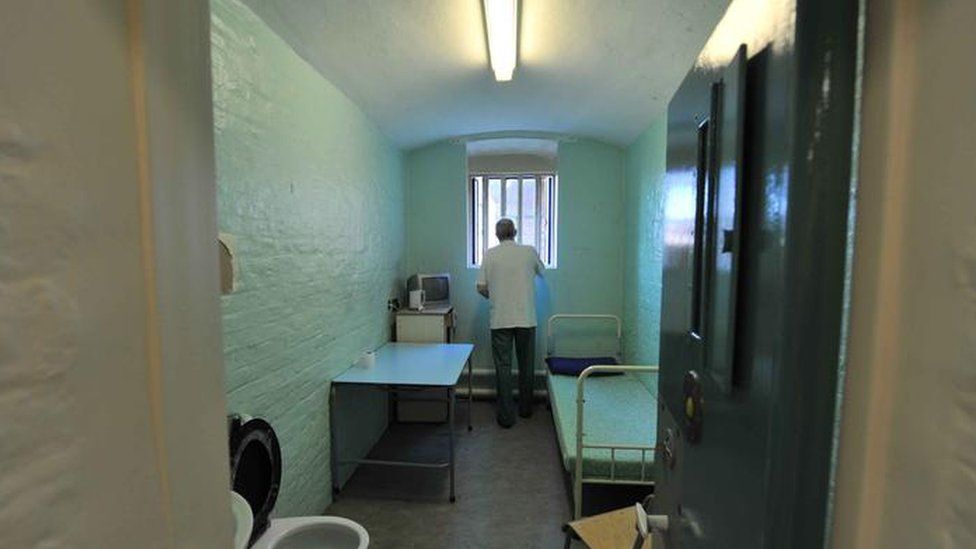Prisons face influx of older inmates, official projections suggest
- Published

UK prisons face an increase in elderly inmates - partly due to more convictions for historic sexual offences, official projections show.
The number of prisoners aged over 70 in British jails is set to go up by 35% in the next four years.
Many of them will be on long sentences with little prospect of early release, the report says.
The Prison Reform Trust says prisons are struggling to cope with the numbers of elderly, sick and disabled inmates.
The latest official projections for Britain's prison population, released earlier on Thursday, say it will go down slightly from just over 85,000 to just over 84,000 by 2021, thanks to lower crime rates and fewer criminals being given custodial sentences.
But the "recent trend" in older offenders being given long sentences for serious sexual offences is placing an "upward pressure" on numbers, the report says.
'Basic needs'
There has been a big increase in reports of historical sexual abuse after a string of high-profile celebrity convictions, often of men in their 70s and 80s.
More than 2,200 suspects were being investigated by UK police probing historical child sex abuse allegations, according to figures released in December by Operation Hydrant, the unit set up to investigate, including 302 people of "public prominence".
According to the Ministry of Justice report on prison population, the number of inmates aged over 50 is projected to grow from 12,700 to 13,900 by the end of June 2020, a rise of 9.5%, while the number of over-60s behind bars will grow by 20% from 4,500 to 5,400 over the same period.
The biggest percentage increase is expected to be in the over-70s group, which is projected to grow from 1,400 to 1,900, a 35% increase.
Mark Day, head of policy and communications at the Prison Reform Trust, said: "Responding to a rapidly ageing prison population will pose significant challenges for a prison system designed and built for young men.
"Too many frail and elderly people are held far from their local communities in prisons totally unsuited to meeting even their basic needs.
"Caring for people with mobility problems, dementia, and chronic illness is a role for trained healthcare professionals, not prison staff.
"Solutions lie in effective estate modernisation and close cooperation between local authorities, health, social care and criminal justice agencies."
The Ministry of Justice has said it is looking at adapting prison regimes to suit older prisoners and some prisons now have dedicated wings and units for them.
A Ministry of Justice spokesperson said: "We are committed to ensuring that older prisoners are treated fairly.
"We work closely with the NHS and local government to make sure they have access to the right health and social care support.
"There are also a number of dedicated prison areas and units which specifically cater for the needs of older prisoners by adapting regime according to need."
- Published10 September 2015